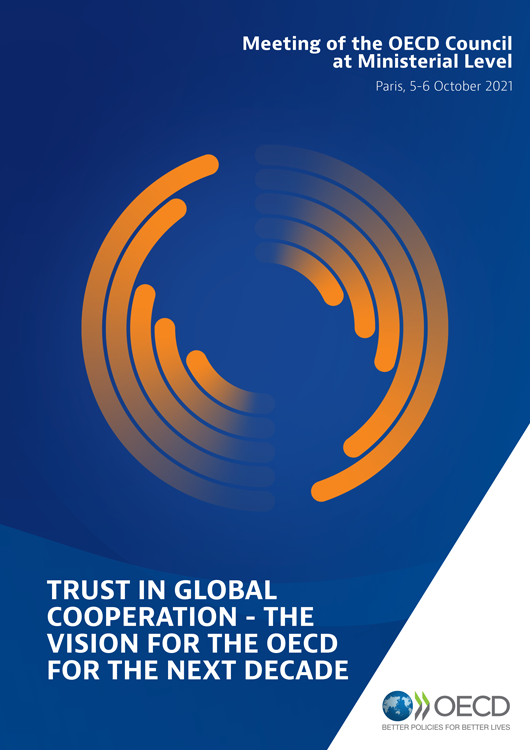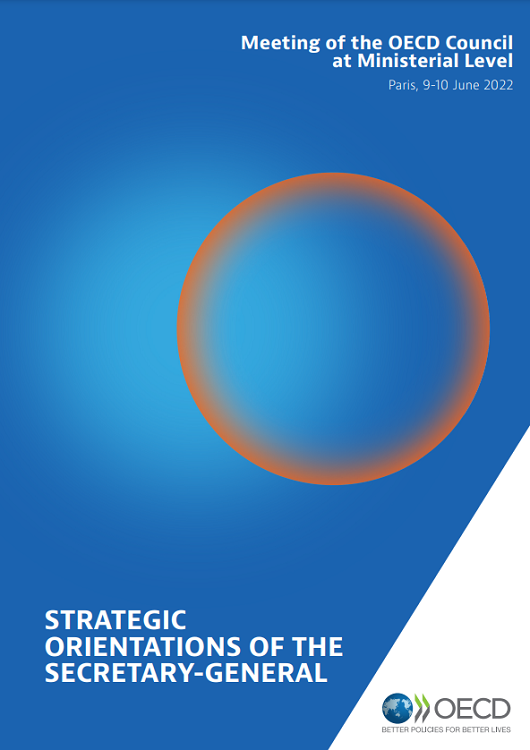Remarks by Angel Gurría
OECD Secretary-General
25 February 2019, Barcelona, Spain
(As prepared for delivery)
Dear Commissioner, dear panellists, ladies and gentlemen:
Less artificial and more intelligent!
Our technologies, our innovation, our economies, need to be less artificial and more intelligent. How do we do that? How do we bring the human being, the values of inclusion and wellbeing to the heart of Artificial Intelligence? This is one of the greatest challenges of our days!
This Mobile World Congress (MWC) and this reflection about Artificial Intelligence come at a crucial time. The rapid digitalisation of our economies and societies is affecting us all, bringing both opportunities and challenges.
The countless benefits of AI
The digital revolution has already created countless benefits. In many crucial areas, like housing, health, urban planning, agriculture, tourism, remittances, energy, you name it, the digital technologies are fuelling remarkable progress and inclusion.
In the EU, the fastest growth in jobs between 2008 and 2017 was in the scientific and technical activities sectors. AI is not only dynamising economies and facilitating lives, it is also helping people make better predictions and better decisions, be it a shop-floor manager or a doctor in the operating room. And today we have evidence to prove that AI performance improves when machines work with men and women who have the right complementary skills and knowledge. Less artificial, more intelligent!
At the same time, AI has been a great niche for investment and business development. Since 2011, total global equity investments in AI start-ups has increased by a factor of 20, reaching an annual total of 16 billion US dollars in 2017. AI technologies are also maturing and business models are improving, bringing AI closer to mass scale roll out. Think about it: your smartphone can already analyse your fatigue levels while driving, it can use speech recognition to offer on-the-spot translation, and it can enhance the way you take, store and share photos.
Some countries are recognising this potential and have already launched efforts to shape a strategic foresight. China and France are working on strategic plans, Japan has set up a strategic council, the US just issued an Executive Order on Maintaining American Leadership in Artificial Intelligence and the United Arab Emirates has created a whole Ministry dedicated to AI.
We also see the private sector, technical community and civil society taking action – with proposals coming from businesses like Telefonica and Google, which has recently released a white paper on “Perspectives on Issues in AI Governance” and from bodies such as the IEEE [“I-triple-E”], which is poised to release version 3 of its “ethically aligned design principles” for practitioners.
AI also brings challenges and uncertainties
Despite these benefits, the increasing presence of AI in our lives is also causing disruption. Estimates today suggest that 14% of jobs in OECD countries are at high risk of automation, and a further 32% at risk of significant change over the next 10 to 20 years. This is half the labour force!
In addition, AI can also cause anxieties and give rise to ethical and diversity issues. Chief among them are questions of privacy and security, the safety of autonomous systems and the dangers of codifying already existing biases from the analogue world into the digital world – including those related to gender and race. As such, we must avoid the very real danger that we establish automatised discrimination, above all in life changing decisions such as, hiring processes, loan approvals or even the criminal justice system. And of course we must keep in mind that the more data we collect, the greater the potential privacy and security implications.
As AI alters the landscape of human activity, this demands urgent responses from policymakers, businesses, technology leaders and civil society. The OECD’s responsibility is to design high quality policies, to promote the potential of this promising technology, and to help countries define the rules of the game.
The OECD is defining the rules of the game.
At the OECD we have been working hard to address these challenges. We are sharing international experiences and best practices to make AI less artificial and more intelligent. The 2016 Japanese G7 Presidency ignited a debate about the broader economic and societal implications of emerging technologies such as AI. Since then, the OECD has been actively moving in this direction, encouraging dialogue and reflection on policy implications of emerging technologies and supporting G7 and G20 discussions.
We aim to set guidelines to help policymakers around the world create a predictable yet stable policy environment to foster innovation for trustworthy AI. This will help reap its economic and social benefits while protecting individual freedoms. To do this, last year we established a multi-stakeholder and multi-disciplinary expert group on AI to scope principles for public policy and international co-operation to foster trust in AI.
We are advancing quickly – just a few days ago, in Dubai, the expert group reached agreement on a set of proposed values and policies around the design and use of trustworthy AI. These put the focus squarely on a human-centred AI, with core values of transparency and accountability to promote trust and achieve sustainable and inclusive growth. This is an immense achievement, which we hope will culminate in the adoption of intergovernmental guidelines by mid-year.
We are also establishing an AI Policy “Observatory”, which will act as an evidence and policy repository. The aim of the Observatory will be to facilitate the development of practical guidance for policymakers as well as to act as a hub for OECD work, which is currently focusing on the impact of AI on productivity, jobs, skills and trust.
All these efforts come in the wider context of our work on the digital transformation. Our Going Digital project was launched to help policymakers better understand the forces of the digital transformation. A new OECD report “How’s Life in the Digital Age?”, which is part of our Going Digital project, will be released tomorrow. It focuses on each dimension of the OECD’s well-being framework showing how the digital transformation touches many aspects of people’s lives bringing with it both opportunities and risks for well-being.
We will be discussing many of these issues at our Going Digital Summit in mid-March and in our next Ministerial Council Meeting (MCM) at the end of May, which this year will be focusing on: ‘Harnessing the Digital Transformation for Sustainable Development.’
Ladies and Gentlemen,
In the words of Kate Crawford, a leading AI researcher, academic and author “Like all technologies before it, artificial intelligence will reflect the values of its creators. So inclusivity matters – from who designs it to who sits on the company boards and which ethical perspectives are included”. Less artificial, more intelligent!
The benefits of AI and digitalisation are immense, but if not well harnessed they can also create significant challenges. This requires a concerted effort by all stakeholders to point AI and other emerging technologies in the right direction – towards a fair, inclusive, sustainable and innovative growth. The OECD is committed to working with all of you as we traverse this exciting ‘new frontier’ to design better digital policies for better lives. Thank you.
See also:
OECD work on Science and Technology
OECD work with Spain

